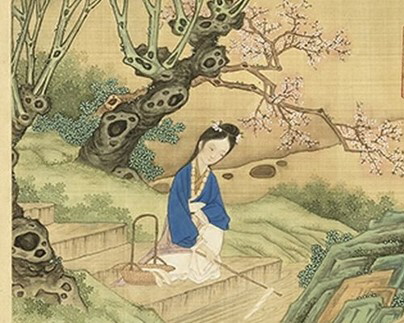|
|
|||||||||||||||||||||||||||||
|
this book is self-published with the assistance of 100 Famous Women in China by X. L. Woo
Since ancient time in China for thousands of years, the social status of women has been generally lower than that of men. That's why the fame of persons handed down and known to us is mostly of men. However, in individual cases, the women did make some contributions in political, military or cultural fields, becoming famous in some ways or other. The author chose the most famous 100 women in the history of China and wrote this book to introduce them to readers. The famous women include empresses in the political field, fighters in military field, and poetesses or learned ones in cultural field, or having special fame as actresses in recent years. The author wrote about the women from earliest history of China, thousands of years ago, till the end of twenty century, all deceased so that, most likely, no more personal information about them will turn up. The author gives here some examples of some of them, such as the sole female sovereign in the Chinese history, Empress Wu in Tang dynasty; Empress Dowager Cixi, who caused the collapse of the Qing dynasty, the last dynasty in China; Jiang Qing, the wife of Mao, who helped Mao to make great chaos in the so-called cultural revolution, and also a red guard, who became a Russian spy; etc.etc. Some really influenced or even changed the course of the Chinese history. Im enjoying this series of mini-biographies, from a country for which Im not too familiar with the history. - Harper Cole I am always the first reader of X. L. Woos book whenever he completes his manuscript. I especially like his books dealing with long Chinese history, such as Empress Dowager Cixi, Empress Wu the Great, Two Republics in China, and Secrets of Red China. As a woman, when I read his manuscript of this book, I really felt proud of all the women who had influenced or even changed the course of human history. Women can do everything as men do. - Beili Cheng samples from the book: 1. Leizu (discoverer of silk) Leizu (?--?) was the wife of Xuanyuan Huangdi (Huangdi literally meaning Yellow Emperor, living round 2550 BC. Chinese people, i.e., Han tribe, deem themselves the posterity of Huangdi.) A legend had it that Huangdi had a war with another tribe, whose leader was Chiyou, who, it was said, had the ability to raise heavy fog so that the army of Huangdi could not find the way where to go. And it was also said that Huangdi invented a guide cart, on which there was a flat plate with a magnet in the shape of a big spoon. The spoon could turn round and the handle of the spoon always pointed south. It was the earliest type of compass. 76. Yan Shanshan (the first female movie star in China) Yan Shanshan (18961952 ) was the first female movie star in China and also a member of the female bomb squadron during the revolution against Qing dynasty in 1911. When she was in Hong Kong Yide Normal School, she got acquainted with Li Minwei (18931953) and on 1931 she was married to him. Then she and her husband founded the Hong Kong Meihua film Company, and in 1914, they made the movie called Zhuang Zi Tests his Wife. Zhuang Zi (369286 BD) was an ancient scholar, who had a book collecting his articles. There was a story about how he tested the faithfulness of his wife to him. Once he feigned to be dead ad buried in a grave. Before his death, he told his wife that she could remarry if the earth on his grave was dry. Then his wife stayed by the side of his grave and fanned the earth in the hope that the earth would be dry faster than normally. In this movie she played the role of a maid of the wife, and her husband acted the wife. All the female roles in the movie before were played by males in disguise. That was why she was deemed the first female movie star. Afterwards, she joined Shanghai Xinmin Film Company and starred in Goddess of Peace (1926), Five Revengeful Girls in 1928, and Reviving Romance in the same year. She gave up acting in that year. Yan Shanshan was never a jealous woman. On the contrary, when in 1919, she met Lin Chuchu (19041979), another actress, she voluntarily introduced her to her husband and let her be another wife of Li Minwei. Li and Lin had formal wedding ceremony on the seventh of January in 1919. In old China it was lawful to have two wives at the same time. Both wives had the equal status in the family. In 1924, Li and Lin starred the movie Rouge as the male and female main characters. So Lin became a movie star, too. Yan died in 1952 at the age of fifty-six. |
||
